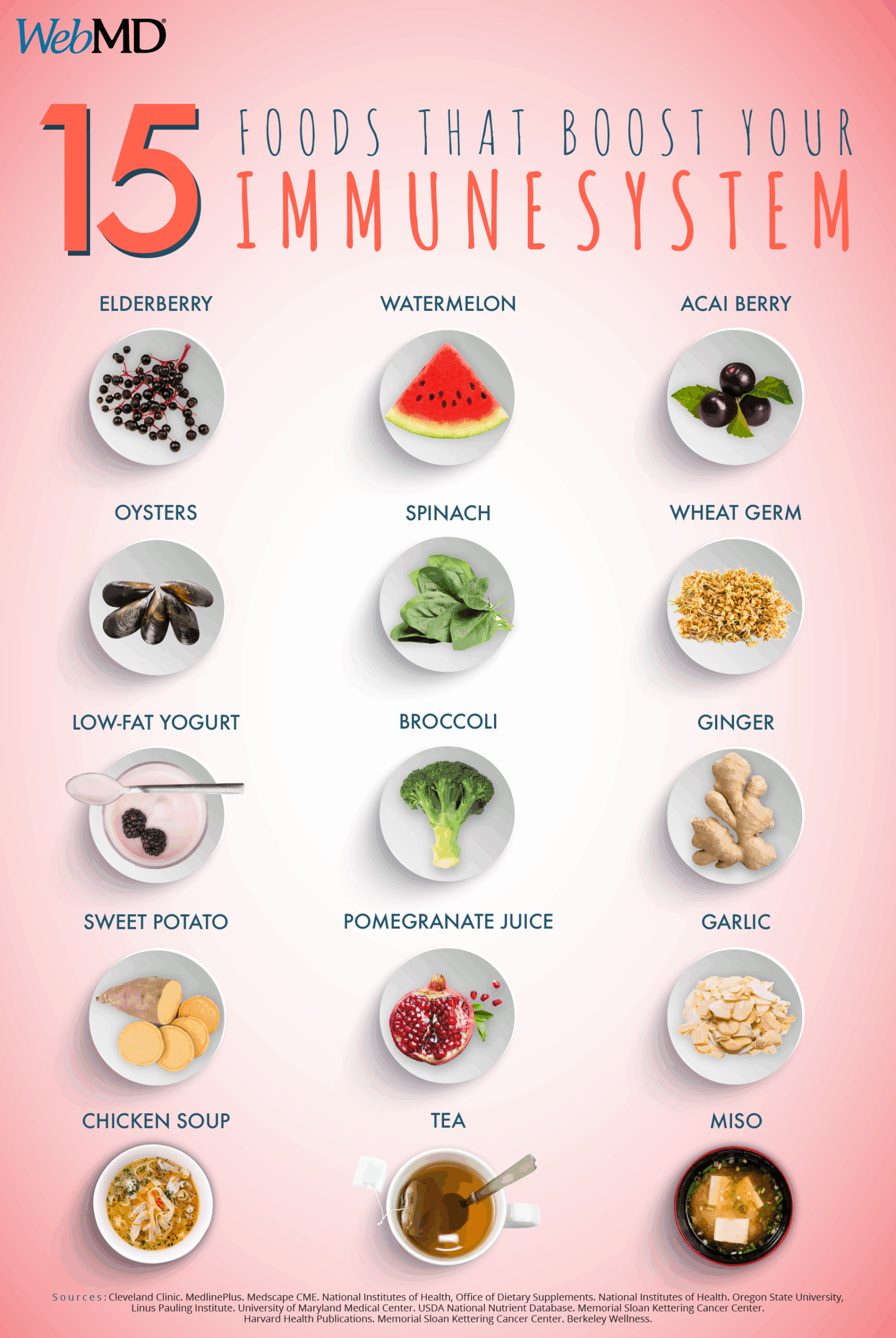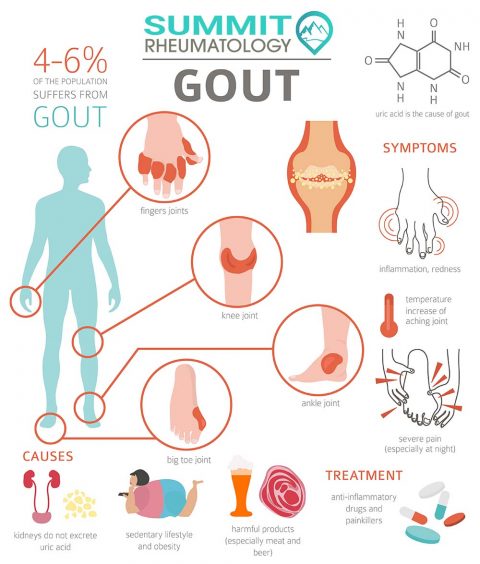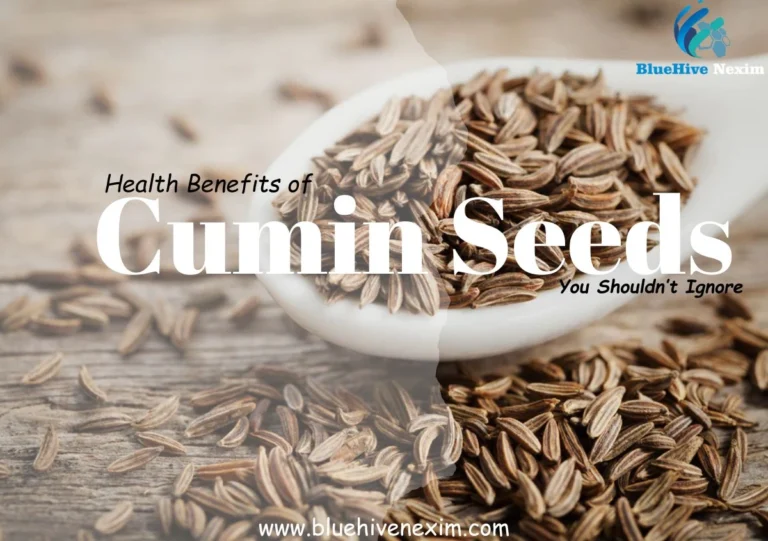Building a Better Immune System: Essential Foods for Defense – A Journey to Resilience
The Unseen Citadel: An Introduction to Our Inner Defenders
Imagine, for a moment, an ancient, sprawling citadel, meticulously designed and constantly vigilant. Its walls are layered, its gates guarded by an intricate system of sentinels, and within its confines, a highly specialized army stands ready. This isn’t a relic of history, but a living, breathing marvel within each of us: our immune system. It is a biological masterpiece, a complex network of cells, tissues, and organs that works tirelessly, day in and day out, to protect us from an invisible world of threats – bacteria, viruses, fungi, parasites, and even rogue cells within our own bodies.
For millennia, humanity has been engaged in an ongoing dialogue with its environment, a conversation punctuated by the whispers of illness and the roar of resilience. Our ancestors, acutely aware of their vulnerability, often turned to the earth for remedies, intuitively understanding that sustenance and healing were deeply intertwined. They might not have known the molecular mechanisms, but they sensed the profound connection between what they consumed and their ability to withstand the onslaught of disease.
Today, armed with the incredible insights of modern science, we can peel back the layers of this ancient wisdom and understand, with unprecedented clarity, the intricate relationship between our diet and the strength of our immune citadel. This is not merely about avoiding sickness; it’s about cultivating a vibrant, resilient existence, optimizing our body’s innate capacity for health and vitality. Our plates, it turns out, are not just sources of fuel; they are arsenals, laboratories, and training grounds for our immune system.
This article embarks on a journey to explore this profound connection. We will delve into the very architecture of immunity, understand its demands, and then systematically uncover the essential foods that serve as its foundational building blocks, its critical fuel, and its strategic enhancers. From the broad strokes of macronutrients to the nuanced power of micronutrients and phytochemicals, we will weave a narrative that empowers you to transform your relationship with food into an active partnership with your own biological defense system. For the knowledgeable audience, we will venture beyond the superficial, exploring the mechanisms and synergistic effects that truly underpin a robust immune response.
The Immune System: An Orchestra of Precision and Power
Before we stock our imaginary arsenal, let’s truly appreciate the complexity of the force we aim to support. The immune system is not a single entity but an incredibly sophisticated orchestra, with each section playing a vital role in maintaining harmony and fending off discord. It operates on two main fronts:
-
Innate Immunity: This is our first, immediate line of defense – the ancient, non-specific response. Think of it as the outer walls, the patrolling guards, and the immediate alarm system. Skin, mucous membranes, stomach acid, and cells like phagocytes (macrophages, neutrophils) that engulf and destroy invaders, all fall under this umbrella. Natural Killer (NK) cells also play a crucial role in eliminating virally infected or cancerous cells. This system responds rapidly, often within minutes or hours, but doesn’t retain memory of specific pathogens.
-
Adaptive (Acquired) Immunity: This is the specialized, highly trained army within the citadel, capable of recognizing, remembering, and precisely targeting specific threats. Lymphocytes – B cells and T cells – are its elite soldiers. B cells produce antibodies, protein weapons designed to neutralize specific pathogens. T cells come in various forms: Helper T cells coordinate the immune response, Cytotoxic T cells directly kill infected cells, and Regulatory T cells ensure the immune system doesn’t overreact. The adaptive system takes longer to mount a response but provides long-lasting immunity through immunological memory.
This constant, intricate dance requires immense energy and a steady supply of specific building blocks. Every antibody produced, every immune cell replicated, every inflammatory cytokine signaling a call to arms, demands resources. Deprive the system of these resources, and its efficiency falters, its defenses weaken, and the citadel becomes vulnerable. This is where nutrition steps onto the stage, not as an optional extra, but as the very bedrock of immune competence.
Macronutrients: The Foundation of the Fortress
Our journey begins with the macronutrients – proteins, fats, and carbohydrates – the large-scale components that provide energy and the raw materials for cellular structures. Think of them as the essential timber, stone, and mortar for our immune fortress.
1. Proteins: The Architects and Builders
Proteins are arguably the most critical macronutrient for immune function. They are not merely for building muscle; they are the architects, the builders, and the specialized weaponry of the immune system.
- Antibodies: These Y-shaped proteins, produced by B cells, are the precise missiles that neutralize pathogens. Without adequate protein, antibody production is severely compromised.
- Enzymes and Hormones: Many enzymes crucial for immune cell metabolism and signaling, as well as immune-modulating hormones, are proteins.
- Cytokines: These small protein messengers act as the communication network of the immune system, coordinating responses, initiating inflammation, and directing immune cell traffic.
- Cellular Structures: Immune cells themselves, like all cells, are primarily composed of proteins. Their synthesis, repair, and proliferation are entirely dependent on a steady supply of amino acids. Lymphocytes, for example, undergo rapid division during an infection, demanding significant protein resources.
Key Amino Acids for Immunity:
- Glutamine: An essential fuel source for rapidly dividing cells like lymphocytes and enterocytes (gut lining cells). It plays a role in maintaining gut barrier integrity, preventing pathogen translocation.
- Arginine: Involved in T-cell function and wound healing.
- Cysteine: A precursor to glutathione, a powerful endogenous antioxidant vital for protecting immune cells from oxidative stress.
Food Sources: To ensure a complete profile of essential amino acids, include a variety of protein sources.
- Animal Sources: Lean meats (chicken, turkey, beef), fish (salmon, tuna, cod), eggs, dairy products (milk, yogurt, cheese). These are "complete proteins," containing all nine essential amino acids.
- Plant Sources: Legumes (lentils, beans, chickpeas), nuts (almonds, walnuts), seeds (chia, flax, hemp), quinoa, tofu, tempeh. Combining different plant proteins (e.g., rice and beans) ensures a full amino acid spectrum.
2. Fats: The Lubricants, Communicators, and Peacekeepers
Fats often get a bad rap, but healthy fats are absolutely indispensable for immune health. They are the lubricants, the communicators, and in some cases, the peacekeepers within our biological system.
- Cell Membrane Integrity: Every immune cell, like all cells, is encased in a lipid bilayer. Healthy fats ensure these membranes are fluid, allowing for proper signaling, nutrient exchange, and waste removal.
- Fat-Soluble Vitamins Absorption: Vitamins A, D, E, and K are fat-soluble, meaning they require dietary fat for proper absorption. As we will see, these vitamins are profoundly important for immune function.
- Prostaglandin Production: Essential fatty acids are precursors to prostaglandins, eicosanoids that regulate inflammation, blood clotting, and immune responses.
- Omega-3 Fatty Acids (EPA & DHA): These polyunsaturated fats are superstars for immunity. They are potently anti-inflammatory, helping to resolve inflammation once a threat is neutralized, preventing chronic low-grade inflammation that can suppress immune function. They also modulate T-cell activity and cytokine production.
- Omega-6 Fatty Acids (Linoleic Acid): While essential, the modern Western diet often contains an imbalance, with too many omega-6s relative to omega-3s. While some omega-6s are necessary for pro-inflammatory responses (which are vital for fighting acute infections), an excessive ratio can promote chronic inflammation. Balance is key.
Food Sources: Focus on healthy, unsaturated fats and a balanced omega-3 to omega-6 ratio.
- Omega-3s: Fatty fish (salmon, mackerel, sardines, trout), flaxseeds, chia seeds, walnuts, hemp seeds.
- Monounsaturated Fats: Olive oil, avocados, nuts (almonds, cashews).
- Polyunsaturated Fats (balanced sources): Sunflower seeds, pumpkin seeds. Limit highly processed vegetable oils high in omega-6s.
3. Carbohydrates: The Fuel for the Front Lines
Carbohydrates are the primary fuel source for our immune cells. Just as an army needs energy to march and fight, our lymphocytes, phagocytes, and other immune components demand glucose for their intense metabolic activities, especially during an infection.
- Energy for Immune Cell Proliferation: Rapidly dividing cells, like those responding to an infection, have high energy demands, primarily met by glucose.
- Glycoproteins: Carbohydrates are also components of glycoproteins on cell surfaces, which play a role in cell recognition and signaling – crucial for immune cells to differentiate self from non-self.
- Fiber (Prebiotics): A special type of carbohydrate, dietary fiber, acts as a prebiotic, feeding the beneficial bacteria in our gut. This connection is so profound that it warrants its own section, but suffice it to say here that gut health is inextricably linked to immune health.
Food Sources: Prioritize complex carbohydrates over simple sugars for sustained energy and additional benefits.
- Complex Carbohydrates: Whole grains (oats, brown rice, quinoa, barley, whole wheat), legumes, starchy vegetables (sweet potatoes, squash). These provide a steady release of glucose and often come packed with fiber and other nutrients.
- Simple Carbohydrates (in moderation): Fruits (provide natural sugars, but also vitamins, minerals, and fiber). Avoid excessive intake of refined sugars found in processed foods, which can cause blood sugar spikes and potentially impair immune function by affecting white blood cell activity.
The Micronutrient Vanguard: The Specialized Weapons and Strategists
If macronutrients are the foundational building blocks, then micronutrients – vitamins and minerals – are the specialized tools, the communication devices, the precision weaponry, and the strategists that enable the immune system to function with optimal efficiency. Even small deficiencies can have disproportionately large impacts on immune competence.
1. Vitamin C: The Antioxidant Shield and Collagen Builder
Often hailed as the quintessential immune vitamin, Vitamin C (ascorbic acid) is a powerful antioxidant and plays multiple direct roles in immune function.
- Antioxidant Power: It protects immune cells from oxidative stress generated during the fight against pathogens, essentially shielding them from "friendly fire."
- Phagocyte Function: Vitamin C accumulates in phagocytic cells (like neutrophils and macrophages) and enhances their ability to engulf and destroy microbes.
- Lymphocyte Proliferation: It supports the proliferation and function of lymphocytes (T-cells and B-cells).
- Barrier Integrity: It is essential for collagen synthesis, maintaining the integrity of skin and mucous membranes – our first physical lines of defense.
Food Sources: Citrus fruits (oranges, grapefruits), berries (strawberries, blueberries), bell peppers, broccoli, kiwi, tomatoes.
2. Vitamin D: The Immunomodulatory Conductor
Often called the "sunshine vitamin," Vitamin D is far more than just a bone health nutrient. It acts as a powerful immunomodulator, orchestrating and fine-tuning immune responses.
- T-Cell Activation: It’s crucial for the activation of T-cells, enabling them to recognize and target pathogens. Without sufficient Vitamin D, T-cells remain "naive" and unresponsive.
- Anti-inflammatory Effects: It helps regulate inflammatory responses, preventing excessive or chronic inflammation that can damage tissues and suppress adaptive immunity.
- Antimicrobial Peptide Production: Vitamin D stimulates the production of antimicrobial peptides (e.g., cathelicidin) in immune cells and epithelial cells, which have direct pathogen-killing properties.
- Autoimmune Regulation: Its role in immune regulation suggests a potential protective effect against autoimmune diseases.
Food Sources: The primary source is sunlight exposure. Dietary sources include fatty fish (salmon, mackerel), cod liver oil, fortified foods (milk, cereals), and some mushrooms (especially those exposed to UV light).
3. Vitamin A (and Beta-Carotene): The Barrier Guardian and Immune Cell Regulator
Vitamin A is a fat-soluble vitamin vital for maintaining the integrity of epithelial tissues, which form crucial barriers against pathogens.
- Mucosal Barrier Integrity: It’s essential for the health of mucous membranes in the respiratory tract, gut, and urinary tract, which serve as the first line of defense against invading microbes.
- T-Cell and B-Cell Function: Vitamin A plays a role in the differentiation and function of various immune cells, including T-cells and B-cells.
- Antioxidant (Beta-Carotene): Beta-carotene, a precursor to Vitamin A, is a powerful antioxidant that protects cells from damage.
Food Sources: Liver, eggs, dairy, and in the form of beta-carotene: carrots, sweet potatoes, spinach, kale, mangoes.
4. Vitamin E: The Cell Membrane Protector
Another potent fat-soluble antioxidant, Vitamin E, protects immune cell membranes from oxidative damage.
- Cell Membrane Protection: It safeguards the lipid components of cell membranes from free radical damage, ensuring the structural integrity and proper function of immune cells.
- Enhanced T-Cell Function: Studies suggest Vitamin E can enhance T-cell-mediated immunity, particularly in older adults.
Food Sources: Nuts (almonds, hazelnuts), seeds (sunflower seeds), spinach, avocado, olive oil.
5. B Vitamins (Especially B6, B9, B12): The Metabolic Enablers
The B vitamin complex plays a collective but distinct role in supporting immune function, primarily by facilitating energy metabolism and cell synthesis.
- Vitamin B6 (Pyridoxine): Crucial for protein metabolism and the production of antibodies and immune cells. It influences both innate and adaptive immune responses.
- Vitamin B9 (Folate/Folic Acid): Essential for DNA synthesis and cell division, making it vital for the rapid proliferation of immune cells during an infection.
- Vitamin B12 (Cobalamin): Also critical for DNA synthesis, red blood cell formation, and nerve function. Its deficiency can impair immune cell production and activity.
Food Sources:
- B6: Chicken, fish, potatoes, bananas, chickpeas.
- Folate: Leafy green vegetables (spinach, kale), legumes, fortified grains.
- B12: Primarily found in animal products (meat, fish, eggs, dairy). Vegans need to supplement or consume fortified foods.
6. Zinc: The Master Key
Zinc is a trace mineral that acts as a master key, unlocking the function of over 300 enzymes in the body, many of which are directly involved in immune processes.
- Immune Cell Development and Function: It’s critical for the development and function of neutrophils, NK cells, and T-lymphocytes. Even a mild deficiency can impair T-cell function and antibody production.
- Wound Healing: Zinc is vital for tissue repair and wound healing, an important aspect of barrier defense.
- Antiviral Activity: It can interfere with viral replication and reduce the severity and duration of common colds.
Food Sources: Oysters (richest source), red meat, poultry, beans, nuts (cashews, almonds), seeds (pumpkin seeds), whole grains.
7. Selenium: The Antioxidant and Antiviral Agent
Selenium is another trace mineral with powerful antioxidant and immunomodulatory properties.
- Antioxidant System: It’s a key component of glutathione peroxidase, a major antioxidant enzyme that protects immune cells from oxidative damage.
- Antiviral Effects: Selenium plays a role in antiviral immunity and can influence the virulence of certain viruses.
- Thyroid Function: It’s essential for thyroid hormone production, which indirectly impacts metabolic rate and overall immune function.
Food Sources: Brazil nuts (extremely rich, just one or two provide the daily requirement), seafood (tuna, cod), whole grains, poultry, eggs.
8. Iron: The Oxygen Carrier (and Balancing Act)
Iron is essential for oxygen transport and energy metabolism, vital for all cells, including immune cells. However, its role in immunity is a delicate balancing act.
- Oxygen Transport: It’s a component of hemoglobin, ensuring oxygen delivery to tissues, which is crucial for the high metabolic demands of immune responses.
- Enzyme Activity: Many enzymes involved in immune cell function require iron.
The Balancing Act: Too little iron (anemia) impairs immune function, leading to reduced T-cell proliferation and cytokine production. However, too much iron can be problematic, as many pathogens require iron to grow, and excess iron can generate harmful free radicals. Therefore, supplementation should only be done under medical guidance.
Food Sources: Red meat, poultry, fish (heme iron, highly bioavailable), lentils, spinach, beans, fortified cereals (non-heme iron, absorption enhanced by Vitamin C).
9. Copper: The Enzyme Co-factor
Copper is a trace mineral that acts as a co-factor for various enzymes, including those involved in iron metabolism and antioxidant defense.
- Antioxidant Defense: It’s a component of superoxide dismutase, another important antioxidant enzyme.
- Iron Metabolism: Copper is essential for the proper utilization of iron, indirectly supporting oxygen transport and immune cell function.
- Immune Cell Function: Its deficiency can impair neutrophil function and reduce antibody responses.
Food Sources: Shellfish, nuts (cashews, almonds), seeds, mushrooms, organ meats.
10. Magnesium: The Multi-Tasker
Magnesium is an electrolyte involved in over 300 enzymatic reactions in the body, influencing everything from muscle and nerve function to DNA synthesis and blood glucose control. Its widespread role also extends to immunity.
- DNA Synthesis and Repair: Essential for the replication and repair of immune cells.
- Energy Production: Crucial for ATP production, the energy currency for all cellular processes, including immune responses.
- Vitamin D Activation: Magnesium is a co-factor required for the activation of Vitamin D, amplifying its immunomodulatory effects.
- Anti-inflammatory: It has anti-inflammatory properties and can help regulate cytokine production.
Food Sources: Leafy green vegetables (spinach, kale), nuts (almonds, cashews), seeds (pumpkin seeds), legumes, whole grains, dark chocolate.
The Gut-Immune Axis: Our Inner Ecosystem and Its Defenders
Our journey into immune defense would be incomplete without a deep dive into the extraordinary world within our gut. The human gut is home to trillions of microorganisms – bacteria, viruses, fungi – collectively known as the gut microbiome. Far from being mere passengers, these microbes are active participants in our health, and nowhere is their influence more profound than on our immune system.
Consider the gut as the "second brain" or, perhaps more accurately, the "inner garden" where our immune system learns, grows, and is constantly trained. Approximately 70-80% of our immune cells reside in the gut-associated lymphoid tissue (GALT), making the gut a central command center for immunity.
The relationship is symbiotic:
- Immune Training: Gut microbes interact with immune cells in the GALT, educating them, helping them differentiate between harmless food particles and genuine threats, and modulating their responses.
- Barrier Function: A healthy microbiome contributes to the integrity of the gut lining, a single-cell-thick barrier that prevents pathogens and toxins from entering the bloodstream. This is crucial for preventing "leaky gut," which can trigger systemic inflammation and autoimmune responses.
- Metabolite Production: Beneficial gut bacteria produce short-chain fatty acids (SCFAs) like butyrate, propionate, and acetate through the fermentation of dietary fiber. SCFAs are vital energy sources for gut lining cells and possess powerful anti-inflammatory and immunomodulatory properties.
- Pathogen Exclusion: A diverse and robust microbiome occupies ecological niches, outcompeting harmful bacteria and preventing their overgrowth.
Nurturing the Inner Garden:
- Prebiotics: These are non-digestible fibers that act as food for beneficial gut bacteria.
- Food Sources: Garlic, onions, leeks, asparagus, bananas (slightly green), oats, apples, flaxseeds, legumes.
- Probiotics: These are live beneficial bacteria found in fermented foods that can directly contribute to a healthy gut microbial population.
- Food Sources: Yogurt (with live active cultures), kefir, sauerkraut, kimchi, kombucha, tempeh.
A diverse, fiber-rich diet is the cornerstone of a healthy gut microbiome and, by extension, a resilient immune system. Conversely, a diet high in processed foods, sugar, and unhealthy fats can disrupt the microbiome, leading to dysbiosis and compromised immunity.
Phytochemicals: The Plant-Based Superheroes and Strategic Enhancers
Beyond the vitamins and minerals, the plant kingdom offers an astonishing array of bioactive compounds known as phytochemicals. These are not essential for survival in the same way macronutrients or essential vitamins are, but they act as powerful strategic enhancers, adding layers of defense and resilience to our immune system. They often work through antioxidant, anti-inflammatory, and even direct antimicrobial mechanisms.
- Polyphenols: A vast group of compounds found in fruits, vegetables, tea, coffee, and dark chocolate. They are potent antioxidants and possess anti-inflammatory properties.
- Flavonoids (e.g., Quercetin, Anthocyanins): Found in berries, apples, onions, and citrus. Quercetin, in particular, has demonstrated antiviral and anti-inflammatory effects. Anthocyanins give berries their vibrant color and are strong antioxidants.
- Resveratrol: Found in grapes, berries, and peanuts, known for its anti-inflammatory and antioxidant properties.
- Curcumin (from Turmeric): Perhaps one of the most studied phytochemicals, curcumin is a powerful anti-inflammatory agent that modulates numerous signaling pathways involved in immunity.
- Carotenoids (e.g., Lycopene, Lutein, Zeaxanthin): Pigments that give fruits and vegetables their red, orange, and yellow hues. Beyond beta-carotene (a Vitamin A precursor), these are potent antioxidants that protect cells from damage.
- Lycopene: Found in tomatoes, watermelon, and grapefruit, linked to reduced oxidative stress.
- Organosulfur Compounds (e.g., Allicin): Found in garlic and onions. Allicin, in particular, has well-documented antimicrobial and immune-boosting properties.
- Glucosinolates (and Isothiocyanates): Found in cruciferous vegetables. These compounds are metabolized into biologically active forms (e.g., sulforaphane from broccoli) that support detoxification pathways and modulate immune responses.
Food Sources – The Rainbow on Your Plate:
Embrace a wide spectrum of plant foods to harness the synergistic power of these compounds.
- Berries: Blueberries, raspberries, strawberries (rich in anthocyanins, Vitamin C).
- Cruciferous Vegetables: Broccoli, cauliflower, Brussels sprouts, kale (rich in glucosinolates, Vitamin C, folate).
- Alliums: Garlic, onions, leeks (rich in organosulfur compounds, prebiotics).
- Dark Leafy Greens: Spinach, kale, collard greens (rich in Vitamins A, C, K, folate, lutein).
- Brightly Colored Vegetables: Bell peppers, sweet potatoes, carrots (rich in Vitamin C, beta-carotene).
- Herbs and Spices: Turmeric, ginger, oregano, rosemary (packed with polyphenols and other bioactive compounds).
- Green Tea: Contains epigallocatechin gallate (EGCG), a powerful antioxidant and immune modulator.
It’s crucial to remember that the magic lies in the synergy. These compounds often work best together, amplifying each other’s effects, rather than in isolated supplement form. A varied, plant-rich diet ensures a diverse intake of these natural defenders.
The Symphony of Synergy: Eating for Holistic Resilience
Our exploration reveals a profound truth: building a better immune system is not about chasing single "superfoods" or isolated nutrients. It’s about cultivating a harmonious dietary pattern, a symphony where every instrument plays a crucial, interconnected role. The immune system, in its exquisite complexity, thrives on diversity and balance.
Consider the Mediterranean Diet as a prime example of an eating pattern that inherently supports immune health. It emphasizes:
- Abundant Fruits and Vegetables: Providing a wide array of vitamins, minerals, fiber, and phytochemicals.
- Whole Grains: Supplying complex carbohydrates for sustained energy and fiber for gut health.
- Legumes, Nuts, and Seeds: Excellent sources of protein, healthy fats, fiber, and various micronutrients.
- Healthy Fats: Olive oil as a primary fat source, rich in monounsaturated fats and polyphenols.
- Fatty Fish: Regular intake of omega-3 rich fish.
- Moderate Dairy and Lean Proteins: Providing complete proteins.
- Limited Processed Foods, Sugars, and Red Meats: Reducing inflammatory triggers.
This dietary approach doesn’t focus on individual components but on the synergistic effects of a whole-food matrix. The antioxidants in one food protect the integrity of another; the fiber feeds the gut bacteria that produce anti-inflammatory compounds; the proteins provide the building blocks for the immune cells themselves. It’s a holistic approach that respects the body’s intricate biochemistry.
The danger of reductionism – focusing solely on one nutrient or compound – is that we miss the forest for the trees. A Vitamin C supplement, while potentially helpful in specific scenarios, cannot replicate the thousands of beneficial compounds and the fiber found in a whole orange. Food is more than the sum of its parts; it is a complex biological package designed to nourish and protect.
Beyond the Plate: Lifestyle Integration for Peak Defense
While nutrition forms the bedrock of immune resilience, our immune system doesn’t operate in a vacuum. Its strength is profoundly influenced by broader lifestyle factors. Food is the fuel, but these factors are the maintenance crew, the training regimen, and the rest periods for our immune army.
- Stress Management: Chronic stress floods the body with cortisol, a hormone that, in sustained high levels, can suppress immune function, making us more susceptible to infections. Practices like meditation, mindfulness, yoga, spending time in nature, or engaging in hobbies can mitigate this effect.
- Adequate Sleep: Sleep is not merely rest; it’s a critical period for immune system repair and consolidation. During sleep, immune cells like T-cells and cytokines are produced and organized. Chronic sleep deprivation significantly impairs immune responses. Aim for 7-9 hours of quality sleep per night.
- Regular Exercise: Moderate, consistent exercise boosts immune function by increasing the circulation of immune cells, reducing inflammation, and improving overall cardiovascular health. However, extreme, prolonged endurance exercise without adequate recovery can temporarily suppress immunity.
- Hydration: Water is essential for every bodily function, including the transport of nutrients, removal of waste products, and the proper functioning of all cells, including immune cells. Staying well-hydrated ensures mucous membranes remain moist and effective as a first line of defense.
These lifestyle components don’t replace the power of a nutrient-dense diet, but they act as critical co-factors, allowing the immune system to utilize the nutritional resources optimally and perform at its peak.
The Journey Forward: Cultivating a Resilient Self
Our journey through the intricate landscape of the immune system and its dietary allies reveals a powerful and empowering narrative. The strength of our inner citadel, our capacity to defend against illness and thrive, is not solely a matter of genetic lottery or chance. It is, to a significant and often underestimated degree, a reflection of the choices we make every day, starting with what we put on our plates.
We have seen that every protein, every healthy fat, every complex carbohydrate, every vitamin, mineral, and phytochemical plays a specific, vital role in this grand biological defense. From building the very structure of immune cells to fueling their intense activity, from orchestrating their communication to protecting them from collateral damage, food provides the blueprint and the resources for a robust and responsive immune system.
The knowledge shared here is not merely a collection of facts; it is an invitation to agency. It is an invitation to shift from a reactive mindset, where we only consider our immune system when illness strikes, to a proactive one, where we consciously cultivate resilience. By embracing a diverse, whole-food diet rich in plants, lean proteins, and healthy fats, and by integrating supportive lifestyle practices, we are not just eating for today; we are investing in our long-term health, vitality, and our capacity to navigate the inevitable challenges of life with strength and grace.
Let this understanding empower you to view your plate not just as sustenance, but as a







